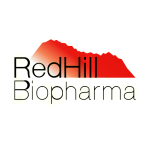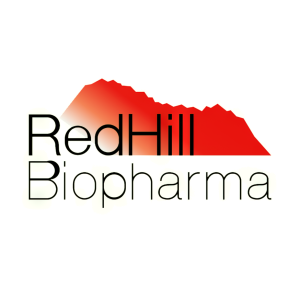Welcome to our dedicated page for Redhill Biopharm SEC filings (Ticker: RDHL), a comprehensive resource for investors and traders seeking official regulatory documents including 10-K annual reports, 10-Q quarterly earnings, 8-K material events, and insider trading forms.
The RedHill Biopharma Ltd. (Nasdaq: RDHL) SEC filings page on Stock Titan provides centralized access to the company’s Form 20-F annual reports and Form 6-K current reports, which together document its regulatory, clinical, commercial and financing activities. As a foreign private issuer focused on gastrointestinal diseases, infectious diseases and oncology, RedHill uses Form 6-K extensively to furnish press releases and other information to the U.S. Securities and Exchange Commission.
In these filings, investors can review detailed disclosures about Talicia®, RedHill’s FDA-approved oral therapy for Helicobacter pylori infection in adults, including its indication, QIDP-based market exclusivity, patent coverage and ex-U.S. licensing arrangements. Filings also describe the company’s late-stage development programs: opaganib (ABC294640), a sphingosine kinase-2 selective inhibitor with anticancer, anti-inflammatory and antiviral activity; RHB-102 (Bekinda®), an extended-release ondansetron formulation for multiple gastrointestinal and oncology-support indications; RHB-204, an optimized formulation of RHB-104 for Crohn’s disease and pulmonary nontuberculous mycobacteria disease; and RHB-107 (upamostat), a host-directed serine protease inhibitor in late-stage development for non-hospitalized symptomatic COVID-19 and other conditions.
RedHill’s Form 6-K reports also cover capital markets and financing transactions, such as at-the-market offering programs, purchase agreements for American Depositary Shares, and amendments to ownership thresholds. Additional filings document Nasdaq listing compliance matters, including notifications related to the minimum stockholders’ equity requirement and subsequent confirmation of regained compliance, as well as legal proceedings like New York Supreme Court judgments and Korean court attachment orders in the Kukbo dispute.
Stock Titan’s interface is designed to surface these filings as they are furnished to EDGAR and to pair them with AI-powered summaries that explain the key points of lengthy documents. Users can quickly identify items such as quarterly and interim financial information, registration statement incorporations by reference, and governance or financing updates, while drilling down into full-text filings when more detail is needed.
RedHill Biopharma Ltd. has filed a resale registration for up to 6,465,559 American Depositary Shares (ADSs) that may be offered from time to time by YA II PN, Ltd. under a standby equity purchase arrangement. The total covers 5,000,000 ADSs that RedHill may sell to YA, plus ADSs already issued or issuable as Initial Equity Shares, Pre-Funded Warrants and Commitment Shares.
RedHill will not receive proceeds from YA’s resale of these ADSs, but may raise up to
The filing highlights dilution and price pressure risks from this structure, alongside other financing tools such as an existing
RedHill Biopharma Ltd. has called an extraordinary general meeting of shareholders for March 5, 2026, to be held at its Tel-Aviv offices. The notice states that only holders of record of ADSs at the close of business on January 23, 2026 are entitled to receive notice and vote.
The board of directors recommends that shareholders vote “FOR” the proposals described in the proxy materials. ADS holders are asked to return their proxies by the deadline on their proxy form, and shareholders may submit written position statements to the company by February 23, 2026.
If a quorum is not reached within half an hour of the scheduled time, the meeting will be adjourned to a later date as determined by the board. The notice and related documents will be available on RedHill’s website and on the SEC website.
RedHill Biopharma reports new preclinical in vivo data suggesting its investigational drug opaganib may help overcome resistance to venetoclax, a key therapy for Chronic Lymphocytic Leukemia (CLL). In a mouse model, adding opaganib, a potent sphingosine kinase 2 (SPHK2) inhibitor, to venetoclax reduced CLL cells (CD19⁺, CD5⁺) by 50% versus controls and lowered certain T cell populations and PD1 expression, indicating a potential role in mitigating resistance to BCL‑2 inhibition.
The company highlights opaganib as a first‑in‑class, orally administered, host‑directed agent with anticancer, antiviral and anti‑inflammatory activity, with a safety and tolerability profile demonstrated in more than 470 clinical and expanded access participants. Opaganib is being evaluated in a Phase 2 trial with darolutamide in advanced prostate cancer, holds FDA orphan designations in cholangiocarcinoma and neuroblastoma, and is backed by several U.S. government programs, including BARDA, across oncology, radiation injury and pandemic preparedness indications.
RedHill Biopharma Ltd. (RDHL) reports that on November 26, 2025 it filed a prospectus supplement to increase the maximum aggregate offering amount of American Depositary Shares (ADSs) that may be issued and sold under its existing At The Market Offering Agreement with H.C. Wainwright & Co., LLC, originally entered into on February 3, 2025. Each ADS represents 10,000 ordinary shares of RedHill, with a par value of NIS 0.01 per share.
The report also notes that legal opinions and related consents from Goldfarb Gross Seligman & Co. and Haynes and Boone, LLP are filed as exhibits, and that this Form 6-K is incorporated by reference into multiple existing RedHill registration statements on Forms S-8 and F-3.
RedHill Biopharma Ltd. is increasing the maximum aggregate amount of American Depositary Shares it may sell under its at-the-market offering agreement with H.C. Wainwright & Co. to $352,267. Each ADS represents ten thousand Ordinary Shares, and this new limit applies only to future sales under the existing Sales Agreement.
As of this supplement, the company’s public float under Form F-3 was valued at $11,448,803.52, based on 45,431,765,990 Ordinary Shares held by non-affiliates, which would be represented by 4,543,176 ADSs at a price of $2.52 per ADS as of October 1, 2025. Over the prior 12 months, RedHill sold 890,001 ADSs via the program for approximately $3.4 million in gross proceeds, and any further increases in sale capacity will require an additional prospectus supplement.
RedHill Biopharma reported a legal milestone: the New York Supreme Court’s summary judgment in its favor against Kukbo is now final and eligible for enforcement and foreign recognition, with no further appeal permissible following expiry of the appeal period.
The Court awarded more than $10.5 million, comprising a main judgment of approximately $8.6 million, which is final and enforceable, and approximately $1.9 million for legal fees and expenses, which remains subject to appeal until March 13, 2026. Statutory interest of 9% per year continues to accrue on both awards. RedHill also obtained a Korean court attachment grant aimed at preventing Kukbo from disposing of assets prior to enforcement.
RedHill Biopharma reported receipt of a Nasdaq Staff Determination for continued non-compliance with the minimum stockholders’ equity requirement under Listing Rule 5550(b)(1). The company notes the minimum threshold is $2.5 million and says that, following its transaction with Cumberland Pharmaceuticals announced October 20, 2025, it believes equity now exceeds that level.
RedHill intends to appeal to a Nasdaq Listing Qualifications Panel, which may determine that compliance has been regained or grant up to a 180-day extension. Submission of a hearing request will stay any delisting or suspension action, and RedHill’s American Depositary Shares remain listed and traded on the Nasdaq Capital Market pending the Panel’s decision. The company cautions there is no assurance of a favorable outcome or an extension.
RedHill Biopharma Ltd. filed a prospectus supplement for the resale, from time to time, of up to 4,582,582 American Depositary Shares (ADSs), each representing 10,000 ordinary shares. The registration covers ADSs that may be issued to Alumni Capital LP under an Any Market Purchase Agreement establishing a committed equity line, including up to 333,333 ADSs issuable upon exercise of an unregistered commitment warrant.
The supplement also discloses a Letter Agreement dated October 20, 2025, which increases the beneficial ownership limitation for purchases made via Forward Purchase Notices from 4.99% to 9.99%. Purchases via Regular Purchase Notices remain capped at 4.99%. These limits prevent directing purchases that would result in Alumni and its affiliates exceeding the specified ownership thresholds at any single point in time.
RedHill Biopharma (RDHL) amended its Any Market Purchase Agreement with Alumni Capital to raise the beneficial ownership cap tied to Forward Purchase Notices from 4.99% to 9.99%. The agreement, originally signed on June 20, 2025, allows RedHill to sell up to $10,000,000 of ADSs to Alumni from time to time, at the company’s discretion.
Under a Forward Purchase Notice, Alumni may buy ADSs equal to the lesser of $500,000 or 30% of trading volume on the notice date, priced at the day’s lowest traded price multiplied by 96%. Other purchase types remain subject to a 4.99% ownership cap, with the option for the company to issue prefunded warrants instead of ADSs for Initial or Regular Purchase Notices. The amendment applies only to Forward Purchase Notices and does not change the overall program size.
RedHill Biopharma Ltd. announced a press release included in a Form 6-K describing a new ex‑US licensing deal for its H. pylori therapy Talicia and outlining the drug portfolio and public-health context for H. pylori treatment. The company states a new Middle East agreement includes upfront and milestone payments plus sales royalties totaling approximately
The filing summarizes H. pylori prevalence and risks: ~


